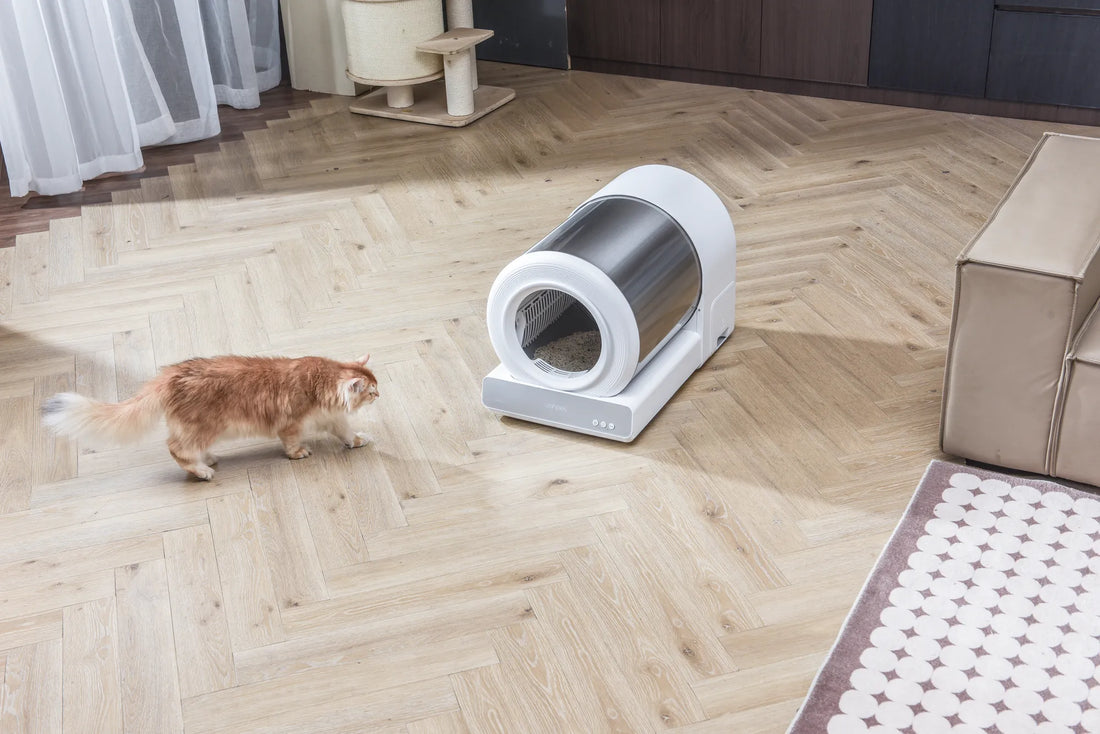If you've ever found yourself asking, 'Why won't my cat pee in her litter box?', you're not alone. This frustrating behavior is a common issue among cat owners, but understanding the underlying causes can help you find a solution. Cats are creatures of habit, and any deviation from their routine can lead to litter box avoidance. In this article, we'll explore the potential reasons behind this behavior and provide practical tips to get your feline friend back on track.
Medical Issues
One of the first things to consider when your cat stops using the litter box is whether there might be an underlying medical issue. Urinary tract infections, bladder stones, and other health problems can make urination painful, causing your cat to associate the litter box with discomfort. If your cat is straining to urinate, producing only small amounts of urine, or showing signs of pain, it's essential to consult a veterinarian as soon as possible. Early diagnosis and treatment can prevent more serious complications and help your cat return to normal litter box habits.
Litter Box Preferences
Cats can be quite particular about their litter box preferences. The type of litter, the size and shape of the box, and even the location can all influence whether your cat decides to use it. Some cats prefer unscented litter, while others may avoid clumping litter. The box should be large enough for your cat to turn around comfortably, and it should be placed in a quiet, accessible location. If you've recently changed the type of litter or moved the box, your cat may be expressing her displeasure by avoiding it. Experimenting with different types of litter and box placements can help you find what works best for your cat.
Stress and Anxiety
Stress and anxiety can also lead to litter box avoidance. Changes in the household, such as the addition of a new pet, a move to a new home, or even a change in your daily routine, can upset your cat and cause her to stop using the litter box. Cats are sensitive to their environment, and even minor changes can have a significant impact on their behavior. Providing a stable, predictable environment and offering plenty of opportunities for play and relaxation can help reduce your cat's stress levels. In some cases, consulting with a veterinarian or a feline behaviorist may be necessary to address more severe anxiety issues.
Cleanliness
Keeping the litter box clean is crucial for encouraging your cat to use it. Cats are naturally clean animals, and a dirty litter box can be a major turn-off. Scoop the box daily to remove waste, and change the litter regularly to keep it fresh. If you have multiple cats, it's important to provide enough litter boxes to accommodate all of them. A good rule of thumb is to have one litter box per cat, plus one extra. This ensures that each cat has access to a clean box at all times and reduces the likelihood of territorial disputes.
Territorial Issues
In multi-cat households, territorial issues can sometimes lead to litter box problems. If one cat is bullying another or guarding the litter box, the victim may avoid using it altogether. Observing your cats' interactions can help you identify any conflicts and take steps to resolve them. Providing multiple litter boxes in different locations can give each cat a sense of security and reduce competition. Additionally, creating separate feeding and resting areas can help minimize tension and promote harmony among your feline companions.
Age-Related Changes
As cats age, they may experience changes in their litter box habits. Older cats may have difficulty accessing a high-sided litter box or may develop arthritis, making it painful to climb in and out. Providing a litter box with lower sides or a ramp can make it easier for an older cat to use. Additionally, senior cats may be more prone to medical issues that affect their urination, so regular veterinary check-ups are essential. Understanding and accommodating your cat's changing needs can help her maintain good litter box habits throughout her life.
Behavioral Issues
Sometimes, litter box avoidance is simply a behavioral issue. Cats may develop a preference for urinating in a particular spot outside the litter box, or they may be marking their territory. In these cases, it's important to clean the affected area thoroughly to remove any scent that might attract your cat back to the spot. Using an enzymatic cleaner can help break down the odor and discourage your cat from returning. Additionally, providing positive reinforcement when your cat uses the litter box correctly can encourage her to continue the behavior.
Understanding why your cat won't pee in her litter box is the first step toward resolving the issue. By addressing potential medical problems, considering your cat's preferences, and creating a stress-free environment, you can help your feline friend feel more comfortable and confident using her litter box. Remember, patience and consistency are key, and with the right approach, you can restore harmony to your home and ensure your cat's well-being.













